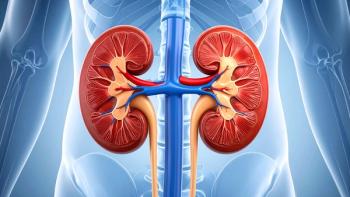
Kidney Cancer Support & Resources
Transcript:
Daniel George, MD: The community doctors have a lot on their plate. They see all kinds of cancers. This whole field of cancer has grown exponentially from when I was in training. It’s hard, sometimes, to keep up with everything. Kidney cancer is not the most common cancer. We see a lot more breast and lung and colon cancer than we do kidney cancer. So, there may be situations where your physician might not be as familiar with some of these newer kinds of breakthroughs or advances in the field—in, say, the academic centers. You should absolutely give them a chance to talk to you about what’s new and what’s available and whatnot, but you can also seek out information by yourself. That’s one of the great things, now, with the information that is available to folks. There are experts around the country that can help you, as well.
So, there are a lot of medical resources out there. Use them. Use your local team. Use your regional referral centers. Use what you can learn from others to really educate yourself on what’s the best course for you.
I think one of the other areas of stress, which is an obstacle for many of our patients undergoing treatment with kidney cancer or chronic disease that we may treat for years, is the out-of-pocket expense associated with some of these therapies. You know, medical expenses have really gone through the roof. There’s the cost of insurance, but there’s also the cost of the co-pays.
One of the great things in this field is that we have a lot of oral therapies that give patients control and give us, as the treating physician team, the opportunity to sort of manage their side effects according to their dose and have good control over how much medicine they take.
But one of the downsides is that a lot of oral therapies have a lot of co-pays associated with them. This can be a real struggle for patients—in understanding how to navigate that. Some patients feel that they’re not worth it. I’ve seen all kinds of reactions to those added costs.
One thing that’s really critical to know is that we should talk about it. It’s something you need to talk about with your physician team. There are a lot of resources out there. Patients are not going to know about these, but the hospitals and the clinics do. There are resources through pharmacy and third-party nonprofits. There are resources through the pharmaceutical companies themselves. These can help support different levels of income for patients to help make these drugs affordable.
We’ve had patients get drugs for free. We’ve had other patients get supplemental support. This makes a huge difference. If someone’s going to respond to a therapy for years, but it’s going to drain all of their resources, they may give up too soon. That’s a shame when we have therapy that’s working. So, to me, this is a critical thing to talk about. We try to bring it up, and we recognize it. People should not feel ashamed about it. This is a reality that we all have to deal with. Thankfully, there’s a lot we can do to help.
Transcript Edited for Clarity




